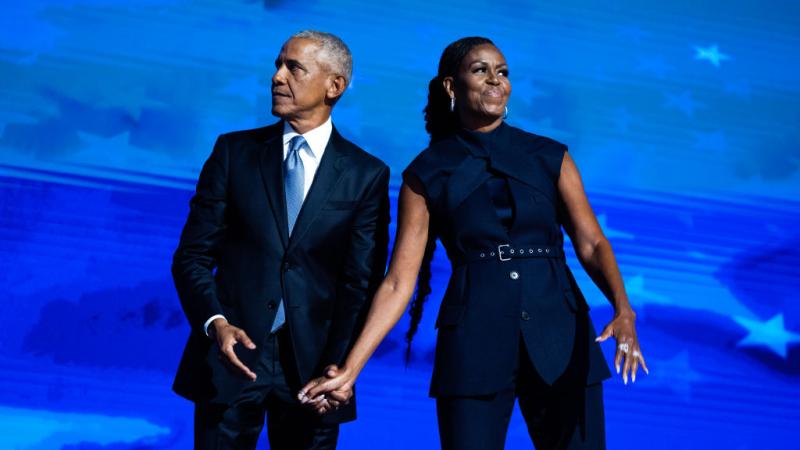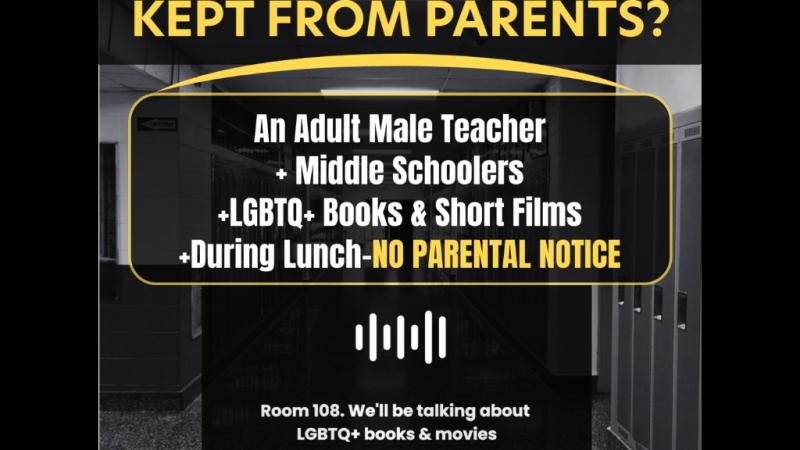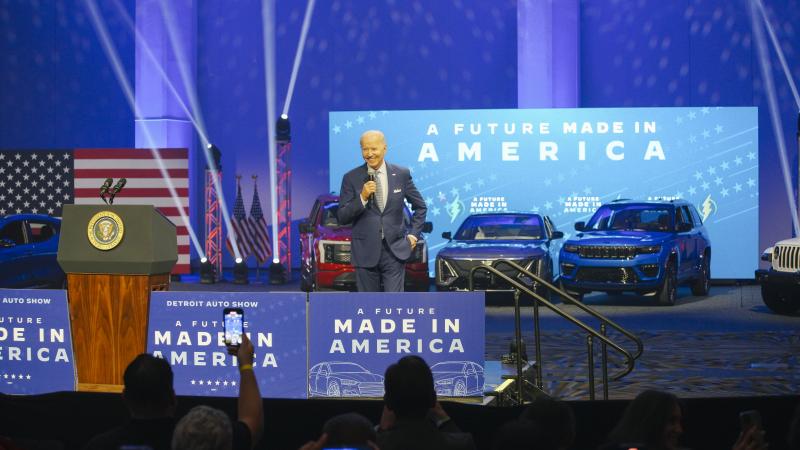Battleground states face lawsuits, changes in laws that will impact the presidential election
Ahead of the general election, multiple swing states are still trying to determine how their elections will be run, as lawsuits over issues such as voter ID and mail-in ballots continue to be filed from all sides.
Seven battleground states have had recent law changes or are facing lawsuits the outcome of which will significantly impact the presidential election in November, ranging from ballot drop boxes to non-citizens on voter rolls.
With the presidential election less than two months away, the states of Arizona, Georgia, Michigan, Nevada, North Carolina, Pennsylvania, and Wisconsin have all had significant changes in election administration and, in some cases, are still awaiting outcomes of lawsuits regarding election procedures.
Arizona
Last month, the U.S. Supreme Court revived part of Arizona's proof of voter citizenship law, allowing for restrictions regarding the state voter registration form.
Following a request from the Republican National Committee (RNC) and Arizona Republicans, the Supreme Court reinstated a provision of the state law after federal courts blocked it, Reuters reported. Individuals filling out voter registration forms for state elections must provide proof of U.S. citizenship, unlike those filling out the federal voter registration forms.
A provision of the law requiring that registrants demonstrate proof of citizenship when registering with the federal forms for the presidential election remains on ice.
Also last month, an Arizona state court judge blocked Democratic Secretary of State Adrian Fontes' as "speech restrictions" for polling places in the state's Elections Procedures Manual (EPM).
In the ruling, Maricopa County Superior Court Judge Jennifer Ryan-Touhill prevented the enforcement of EPM provisions that the Arizona Secretary of State's Office claimed would prevent voter intimidation, NBC 12 News reported.
The EPM deemed intimidating actions to include disseminating false information, talking to a voter with offensive language, following voters to their cars, and posting signs regarding voter fraud penalties.
Ryan-Touhill ruled that the EPM's restrictions are "greater than necessary, vague, overbroad," and "unenforceable."
In August, the Republican Party of Arizona secured an agreement with the Maricopa County Board of Supervisors to test ballot tabulators used in elections, rather than only testing backup equipment.
The agreement states that the board "will inform the Secretary of State that it wants the test to be of at least six of the tabulators and twelve of the accessible voting devices scheduled to be deployed to early voting locations and vote centers."
Georgia
Last month, the Georgia State Election Board (SEB) adopted a rule that requires the number of ballots and voters match up before the certification of election results is issued.
The rule ensures that counties comply with Georgia state code. It comes after Fulton County was found to have likely scanned thousands of ballots twice in a recount of the 2020 election.
The SEB also approved a new rule last month that allows county election boards to make a “reasonable inquiry” before certifying election results. The rule states that certification occurs “after reasonable inquiry that the tabulation and canvassing of the election are complete and accurate and that the results are a true and accurate accounting of all votes cast in that election.”
Michigan
In July, Michigan enacted a law that prohibits election canvassers from investigating fraud allegations and instead requires them to refer such concerns to a county prosecutor or the state's attorney general.
Other laws enacted in July also make clear a recount is not a probe on voter fraud or the state's voting process. Additionally, a recount is only allowed if alleged errors would have flipped the election result.
Michigan also enacted laws last November that critics also say erode election integrity, such as expanding automatic voter registration and clarifying that boards of canvassers do not have discretion over certification of an election.
Nevada
In 2022, Nevada switched to universal mail voting, meaning that voters who do not want to vote by mail must opt out.
On Thursday, the Trump campaign, RNC, and Nevada GOP filed a lawsuit against the Nevada secretary of state for allegedly allowing non-citizens register to vote. According to the plaintiffs, there are likely more than 11,000 non-citizens illegally registered to vote, and more than 3,700 non-citizens who could cast ballots in the November election.
North Carolina
Earlier this month, the North Carolina Court of Appeals removed Robert F. Kennedy, Jr.'s name from the presidential ballot, resulting in a pause in absentee ballots being sent out. The North Carolina State Board of Elections (NCSBE) appealed the court’s decision as new ballots without Kennedy's name on them are being made, according to a press release from the board.
Kennedy suspended his campaign last month and endorsed GOP presidential nominee Donald Trump. He initially said that he would withdraw his name from the presidential ballot in swing states, but later decided to remove his name from the ballot in more states than previously planned, urging his supporters in every state to vote for Trump.
The RNC has also filed four lawsuits against the NCSBE over the last month for allowing the use of digital student ID cards for voter ID, not requiring absentee ballot security envelopes to be sealed, allegedly not removing non-citizens from voter rolls, and registering voters that didn’t provide correct ID.
Pennsylvania
On Friday, the Pennsylvania Supreme Court overturned a lower court decision, ruling that mail-in ballots must have the correct date on them to be counted.
The lower court’s decision was reversed after the Republican National Committee and Pennsylvania GOP appealed, arguing that not all of the counties were included as plaintiffs in the original lawsuit. The ruling was made on jurisdictional grounds, not the merits of the case.
In March, the U.S. Court of Appeals for the Third Circuit ruled that Pennsylvania may enforce state law requiring envelopes for mail-in ballots to be dated and must include the voter's signature.
Wisconsin
In July, the liberal majority of the Wisconsin Supreme Court ruled that absentee ballot drop boxes are allowed in the November election, overturning a 2022 decision by the court that prohibited the receptacles under a conservative majority.
In April, Wisconsin voters approved two constitutional amendments that respectively banned the private funding of election administration and restricted election administration to "only election officials designated by law."
The private funding of elections is similar to what the Center for Tech and Civic Life (CTCL) did in Wisconsin and other states in 2020.
CTCL poured about $350 million into local elections offices managing the 2020 election, with most of the funds donated to the nonprofit by Facebook founder Mark Zuckerberg. The nonprofit has claimed its 2020 election grants — colloquially known as "Zuckerbucks" — were allocated, allegedly without partisan preference to make voting safer amid the pandemic.
However, a House Republican investigation found that less than 1% of the funds were spent on personal protective equipment. Most of the funds were focused on get-out-the-vote efforts and registrations. Controversy ensued in part due to the disproportionate private funding "Zuckerbucks" funneled to Democratic jurisdictions.
The Facts Inside Our Reporter's Notebook
Links
- U.S. Supreme Court revived
- Reuters reported
- Arizona judge blocked
- NBC 12 News reported
- Ryan-Touhill ruled
- secured an agreement
- agreement
- adopted a rule
- rule
- scanned thousands of ballots
- approved a new rule
- rule states
- prohibits election canvassers
- enacted laws
- discretion over certification
- universal mail voting
- filed a lawsuit
- being sent out.
- according to a press release
- withdraw his name
- remove his name
- four lawsuits
- absentee ballot security envelopes
- non-citizens from voter rolls
- overturned a lower court decision
- decision was tossed out
- ruled
- Wisconsin Supreme Court ruled
- 2022 decision
- approved two constitutional amendments
- restricted election administration
- to make voting safer amid the pandemic
- less than 1%
- get-out-the-vote efforts and registrations















